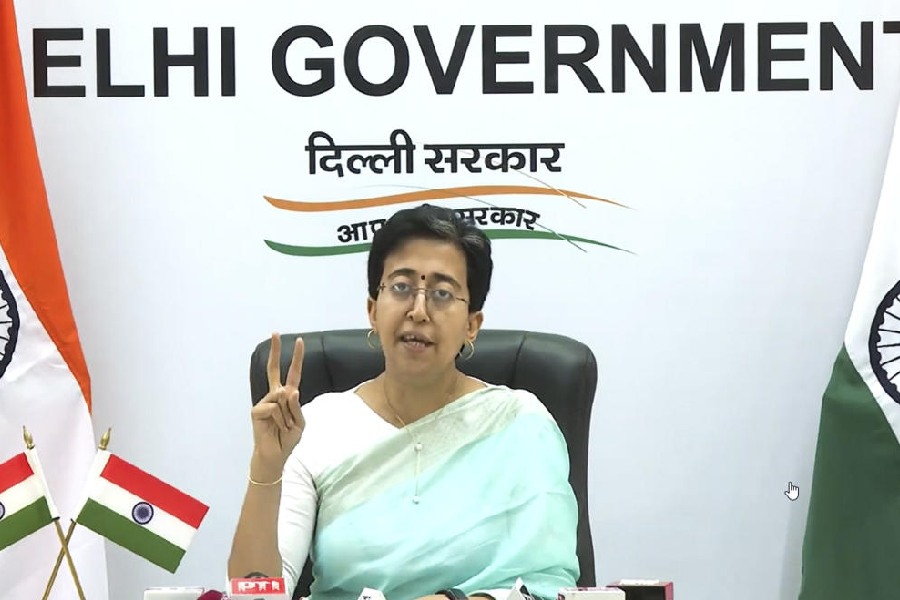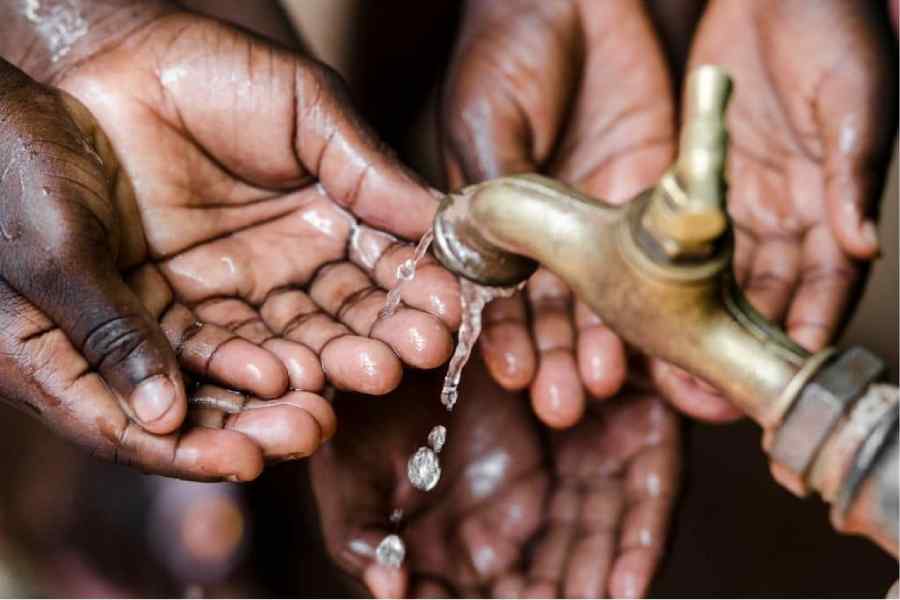Haryana is not releasing to Delhi its share of 1,050 cusecs of water through the Munank canal, the city government's Water Minister Atishi alleged on Saturday.
Addressing a press conference, Atishi said during the summer, when Haryana releases 1,050 cusecs of water, Delhi receives about 990 cusecs.
"However, in the past one week, Delhi has been getting less water. It received 924 cusecs on June 1, 884 cusecs on June 4, 856 cusecs on June 6, and 840 cusecs on June 7. During every summer, there is a loss of around 59 to 60 cusecs of water due to evaporation. If 840 cusecs of water is reaching Delhi, it means Haryana is not releasing water in the Munak canal," she said.
The national capital has been grappling with a water shortage, with Atishi blaming Haryana for not releasing Yamuna water to the city.
The problem has become acute in some areas such as Chanakyapuri, where residents were seen climbing on top of a tanker with pipes to get their share of water.
The acute shortage has become an "existential problem" in Delhi, the Supreme Court observed on Thursday and directed the Himachal Pradesh government to release 137 cusecs of surplus water to the national capital and Haryana to facilitate its flow.
The top court also said there should be no politics over water.
Atishi said if water at the carrier-lined channel and the Delhi sub-branch -- two sub-canals of the Munank canal -- stay at this level, then all of Delhi will face a shortage in the coming two days.
Early on Saturday, Atishi visited the two sub-canals of the Munak canal in Bawana.
She said, "Delhi is completely dependent on the Yamuna for water for domestic use. The water that we use in our homes comes from Delhi's seven treatment plants. Water in these treatment plants comes from the Wazirabad barrage and the two sub-canals of the Munak canal. Water goes to all the seven water treatment plants of Delhi from these two sub-canals." According to an agreement between Haryana and Delhi, Haryana has to release 1,050 cusecs of water daily for the national capital through the Munak canal, she said.
Right now, there is a problem in some parts of Delhi but if the water coming from the Munak canal falls, if Haryana does not release the right amount of water, then the situation will become even more serious and there will be shortages in all parts of the city, Atishi claimed.
Responding to her allegations, the BJP's Delhi unit chief Virendra Sachdeva challenged Atishi to an open debate with the Haryana government and the Delhi BJP or to call an all-party meet on the issue.
Atishi inspected the Wazirabad barrage on Friday and the Munak-Bawana canal on Saturday, where she falsely claimed that the Haryana government is not releasing enough water. However, she did not mention that silt has not been removed from the Wazirabad barrage for the past 10 years, reducing its storage capacity, Sachdeva alleged.
He claimed disproportionate distribution in many areas of Delhi has led to people fighting over water.
On Friday, visiting the Wazirabad barrage to take stock of the situation, she said the shortage would not be solved even if Himachal Pradesh released water as Haryana had "reduced" the city's share.
"Haryana is conspiring against the people of Delhi behind the back of the Supreme Court," she had alleged.
"The water level of the Yamuna at Wazirabad has come down from 671 feet on June 2 to 669.7 feet on Friday. If the water level falls so low, how will the water treatment plants supply water to the people of Delhi?" she had said.
Except for the headline, this story has not been edited by The Telegraph Online staff and has been published from a syndicated feed.












